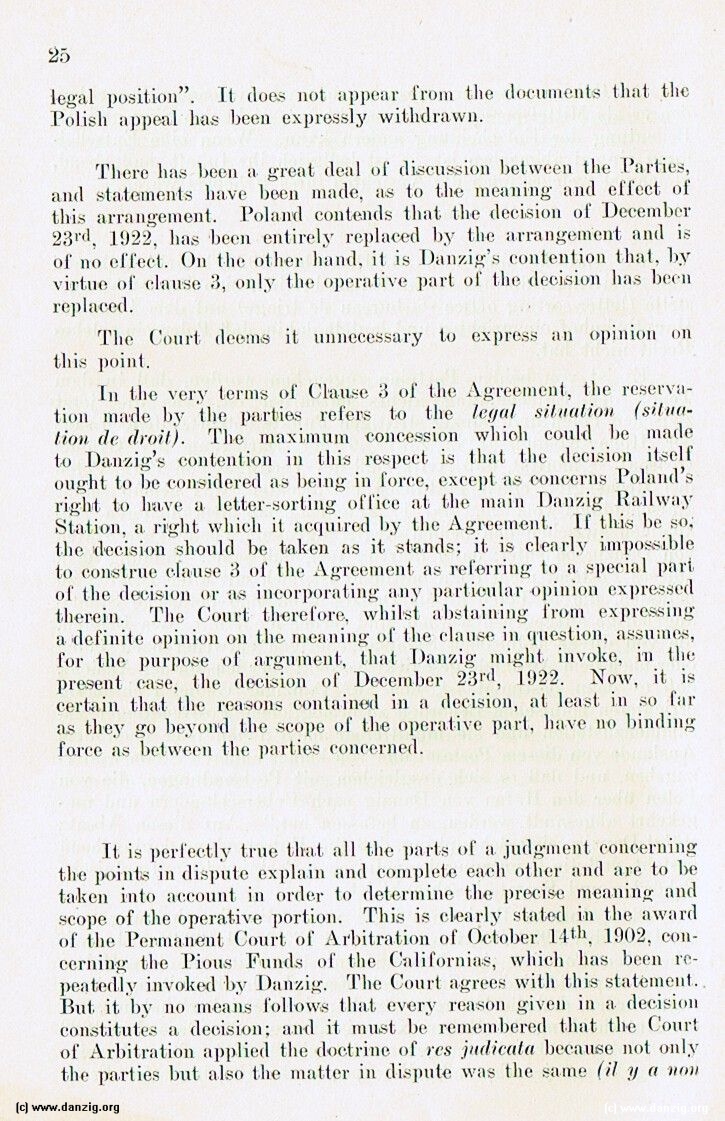
>> Danzig-Polish Post Office Dispute 1925
legal position”. It does not appear from the documents that the Polish appeal has been expressly withdrawn.
There has been a great deal of discussion between the Parties, and statements have been made, as to the meaning and effect of this arrangement. Poland contends that the decision of December 23rd, 1922, has been entirely replaced by the arrangement and is of no effect. On the other hand. it is Danzig’s contention that, by virtue of clause 3, only the operative part of the decision has been replaced.
The Court deems it unnecessary to express an opinion on this point.
In the very terms of Clause 3 of the Agreement, the reservation made by the parties refers to the legal situation (situation de droit). The maximum concession which could be made to Danzig’s contention in this respect is that the decision itself ought to be considered as being in force, except as concerns Poland’s right to have a letter sorting office at the main Danzig Railway Station, a right which it acquired by the Agreement. If this be so; the decision should be taken as it stands; it is clearly impossible to construe clause 3 of the Agreement as referring to a special part of the decision or as incorporating any particular opinion expressed therein. The Court therefore, whilst abstaining from expressing a definite opinion on the meaning of the clause in question, assumes, for the purpose of argument, that Danzig might invoke, in the present case, the decision of December 23rd, 1922. Now, it is certain that the reasons contained in a decision, at least in so far as they go beyond the scope of the operative part, have no binding force as between the parties concerned.
It is perfectly true that all the parts of a judgment concerning the points in dispute explain and complete each other and are to be taken into account in order to determine the precise meaning and scope of the operative portion. This is clearly stated in the award of the Permanent Court of Arbitration of October 14th, 1902, concerning the Pious Funds of the Californias, which has been repeatedly invoked by Danzig. The Court agrees with this statement. But it by no means follows that every reason given in a decision constitutes a decision: and it must be remembered that the Court of Arbitration applied the doctrine of res judicata because not only the parties but also the matter in dispute was the same (il y a non
Danzig-Polish Post Office Dispute, Seite 25.
Hits: 3153
Added: 08/04/2016
Copyright: 2025 Danzig.org

